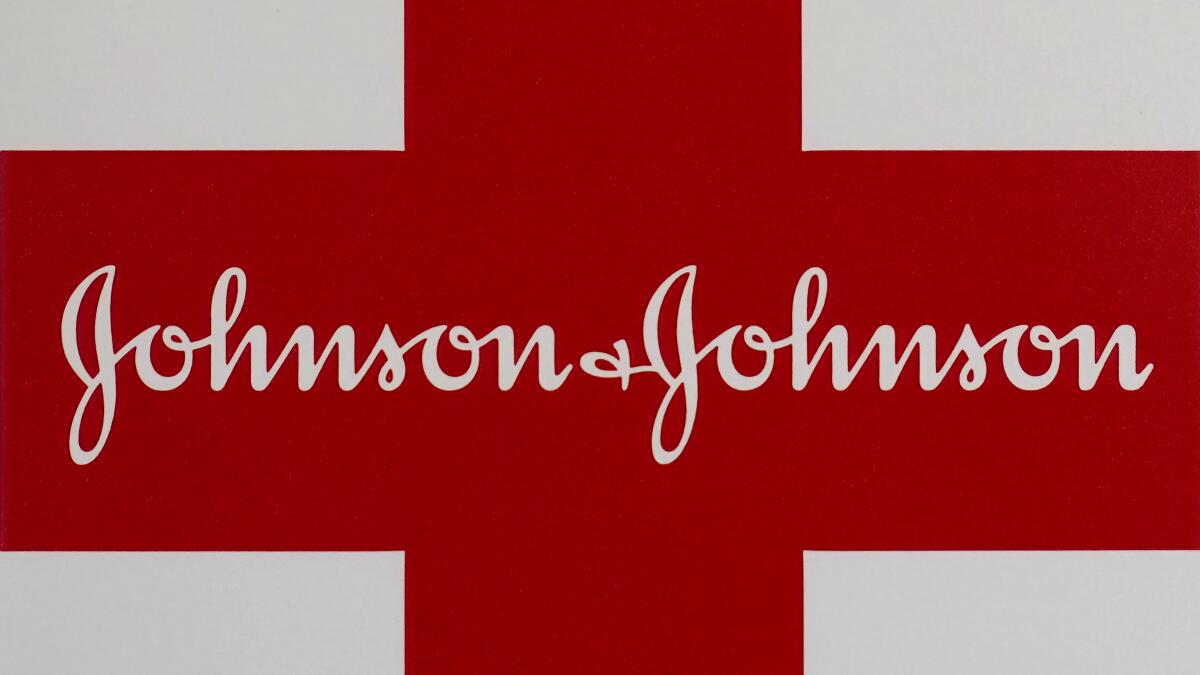Johnson & Johnson will split into two companies to be more nimble

Johnson & Johnson will split in two, separating its consumer health operations from its pharmaceutical and medical device businesses.
- Share via
Johnson & Johnson is peeling off a consumer health business that helped it become the world’s biggest healthcare products maker.
The company said Friday that it will separate its segment that sells Band-Aids, Listerine and over-the-counter medicines such as Tylenol from its pharmaceutical and medical device businesses.
Company leaders told analysts that the split, which will create another publicly traded company for the consumer health side, will make each business more nimble in adapting to its respective markets.
Chief Executive Alex Gorsky said that although the company’s broad focus has worked in the past, the split addresses segments that “have evolved as fundamentally different businesses.”
“We’ve seen a significant evolution in these markets, particularly on the consumer side,” Gorsky said, referring in part to a shift toward online shopping that accelerated during the COVID-19 pandemic.
Vessels bound for the U.S.’s largest port complex in Southern California will now have to wait for an available berth almost seven times farther away than currently allowed in a bid to improve air quality and safety in the area.
An analyst asked company leaders during a Friday call why they were making the change now, when they have touted J&J’s diversity in the past as a way to help offset a downturn in a particular segment.
“I think we have consistently had the belief that our diversified portfolio is rooted in strategy,” Gorsky said. “However, it’s not anchored in strategy.”
University of Michigan business professor Erik Gordon said he didn’t think the two, separate companies would wind up being more focused or nimble because the present company is already decentralized.
Johnson & Johnson “gives its companies a lot of autonomy,” he said.
The segment selling prescription drugs and medical devices — J&J’s two largest businesses — will keep the Johnson & Johnson name and blockbuster drugs including the cancer treatment Darzalex and a COVID-19 vaccine.
The new version of J&J also will get incoming CEO Joaquin Duato, who is slated to replace Gorsky early next year.
The split comes at an ideal time for a leadership change, said Steve Brozak, who follows drugmakers as president of WBB Securities.
He noted that the new CEO takes over what will become a completely different company, one that won’t have easy metrics for comparing with past performances and evaluating progress.
“It buys time for decisions to be made on what to do next,” Brozak said. “This is the perfect vehicle for a management change.”
Competition for tenants willing to pay top dollar has apartment owners in something of an amenities arms race, reaching new heights of pampering.
Pharmaceuticals and medical devices pulled in a combined $19.6 billion in revenue in the company’s recently completed third quarter, which turned out better than analysts expected.
Consumer health brought in $3.7 billion.
A leader and name for the new consumer health company have yet to be announced. It will house brands including Neutrogena, Aveeno and the iconic Band-Aids, which a company employee created more than 100 years ago.
That segment has more than 20 brands that each exceed $150 million in annual sales, Gorsky noted. He added that the portfolio includes well-known names such as Tylenol and children’s Tylenol that have reached all-time highs in market share.
Johnson & Johnson also faces thousands of lawsuits claiming that one of its consumer products, talc-based baby powder, causes ovarian cancer and mesothelioma.
Last month, J&J announced that it had created a separate subsidiary to deal with those claims, and that subsidiary filed for voluntary Chapter 11 bankruptcy protection.
Company officials said the split they announced Friday was “separate and distinct” from that baby powder liability and the bankruptcy proceedings.
But Morningstar analyst Damien Conover noted in an email that if the consumer division “no longer holds the deep pockets of the combined company, the risk of future consumer product litigation — such as the large talc settlement — may decrease.”
Johnson & Johnson, which was founded in 1886, said Friday that its split will occur in the next two years, if approved by the company’s board of directors.
J&J’s announcement comes just days after General Electric said it would split into three companies.
It also follows similar moves by large pharmaceutical rivals Pfizer Inc., which spun off its consumer health product business in 2019, and Merck & Co.
Shares of New Brunswick, N.J.-based Johnson & Johnson rose 1.2% to $165.01 on Friday.
More to Read
Inside the business of entertainment
The Wide Shot brings you news, analysis and insights on everything from streaming wars to production — and what it all means for the future.
You may occasionally receive promotional content from the Los Angeles Times.












